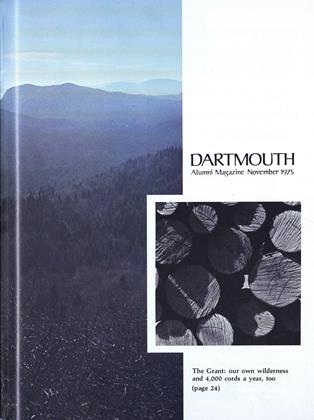FOOTBALL coaches, for all their guarded optimism, guarded pessimism, couched phrases and predictions of gloom, doom, and disaster, usually have a reasonably good measure of the talents of their players and their opponents. Despite what they may say for public consumption, they know when they have a good team, one that has the ability to be overwhelming.
That was the case in 1925 when Jess Hawley, the Chicago businessman who had played halfback on the Dartmouth teams of 1907-08, arrived in Hanover to coach a team that had the elements to improve on the 8-1 record in 1923 and the 7-0-1 performance in 1924, both executed under his guidance.
As the tumult subsided in late November, Hawley finally said what he had known all along: "Dartmouth started this football season with two objectives in view. One was the championship of the East and the other was the championship of the West, and hence the country."
Del Worthington '26, the nonpareil manager of the 1924 and 1925 teams, had an inkling, too. In his scrapbooks which chronicle those seasons he noted, "Probably only one man really knew from the beginning (Labor Day, 1924) that Dartmouth was in for several , big seasons - a chance to come out on top. That man was Jess Hawley. There was abundant hope on all sides, as usual, but only Hawley knew for sure."
Worthington continued, "Even the Grand Old Man of Chicago's Midway, Amos Alonzo Stagg, must have sensed it. At least he came up to Hanover in mid-September, 1924, to arrange a game for next season for what he felt was going to be one of his greatest teams. Fortunately, the coaches' confidence of complete success was well concealed from the players - most of them for all of the two years - and so well that they didn't even know how to celebrate properly when they were given Chicago on a silver platter at the close of the 1925 season."
While Hawley's 1924 team had only a 14-14 tie at Yale to blemish its record, Stagg's Chicago squad won the Big Ten championship. Into the 1925 season, the names that have become legend executed the gospel outlined in the Dartmouth foothall bible that each member received - get the jump and drive while the driving is good.
The season of 1925 was a spectacle, From the outset, the devastation was complete as Norwich, Hobart, Vermont, and Maine were outscored 199-0. Against Vermont, a 50-0 loser, Captain Nate Parker refused to accept penalties. Harvard was a 32-9 victim and the letdown from that exhilarating success was apparent in a 14-0 win over Brown. The 62-13 annihilation of Cornell, historic in football strategy since Cornell, opting to kick off after each Dartmouth score (a standard practice in those days), fell farther and farther behind as Swede Oberlander took advantage of each possession to demonstrate a passing attack that no previous player or team had achieved.
After the 33-7 crushing of Chicago, a game that perhaps made Stagg rue the memory of his trip to Hanover, the acclaim was complete for Parker, Oberlander, Diehl, Tully, Sage, Horton, Hardy, McPhail, Lane and all the rest. In some corners, unbeaten Alabama also gained recognition as national champion, but Hawley's team had its ultimate prize. With a remark that Calvin Coolidge might have ghost-written, Hawley refused all post-season game invitations including a challenge from the University of Washington. "Our season is over," he said. "When it's over, it's over. We will play no post-season games."
That was 50 years ago this fall. There have been two undefeated-untied Dartmouth teams since then, in 1962 and 1970, but none can truly compare with the 1925 team that inspired Grantland Rice to write, "We can recall no attack in modern history that has piled up so many points in feature contests and has shown so much versatility and as much power and speed."
"Big Green Machine, by Amazing Football, Hurls Vaunted Foe Into Discard" was theway they said it in 1925. This year's Penn program commemorated the champions.
 View Full Issue
View Full Issue
More From This Issue
-
 Feature
FeatureA Delicate Balance
November 1975 By DAN NELSON -
 Feature
FeatureOBESITY
November 1975 By MARy BISHOP ROSS -
 Feature
FeatureFairly Faced
November 1975 By WILLIAM W. COOK -
 Feature
FeatureSome Faults, Some Solid Achievements
November 1975 By M.B.R. -
 Class Notes
Class Notes1923
November 1975 By WALTER C. DODGE, THEODORE R. MINER -
 Class Notes
Class Notes1942
November 1975 By RICHARD W. LIPPMAN, A. JAMES O'MARA













